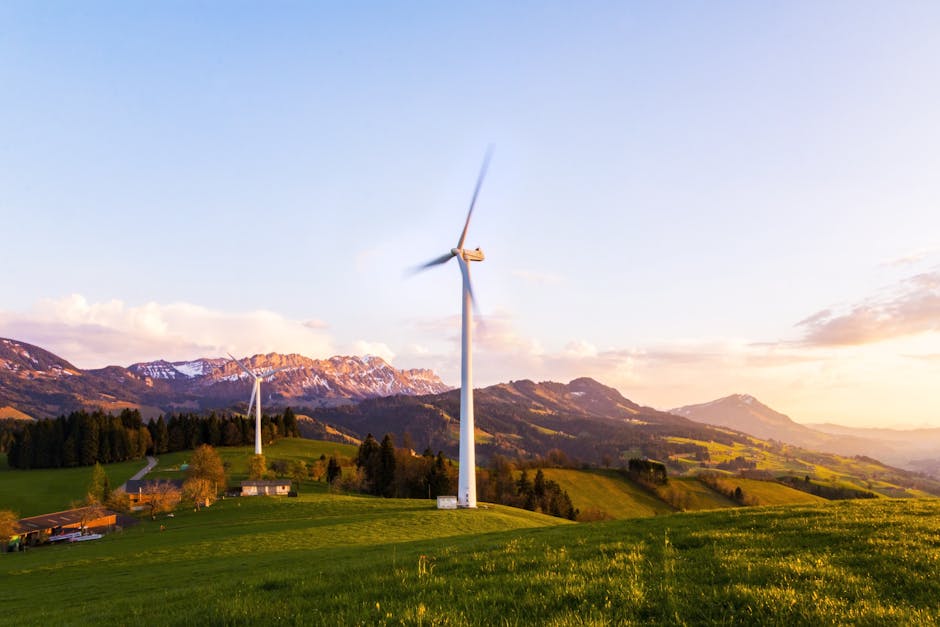Sustainable Production Models: Paving the Way for a Greener Future
As the world grapples with the daunting challenges of climate change, resource depletion, and environmental degradation, the need for sustainable production models has never been more pressing. In a bid to mitigate the adverse impacts of industrial activities on the planet, businesses, governments, and consumers are increasingly turning to sustainable production practices. But what exactly are sustainable production models, and how do they differ from traditional production methods? In this comprehensive guide, we delve deep into the world of sustainable production, exploring its various facets, benefits, challenges, and potential for transforming industries. Join us on this enlightening journey as we uncover the key to a greener, more sustainable future.
The Evolution of Sustainable Production

By Pixabay via Pexels
Historically, industrial production has been synonymous with environmental degradation, resource depletion, and unsustainable practices. The relentless pursuit of economic growth and profit maximization has often come at the expense of the planet’s health, leading to pollution, deforestation, and habitat destruction. In response to these pressing issues, the concept of sustainable production emerged as a viable alternative to traditional production methods. Sustainable production, also known as green manufacturing or eco-friendly production, aims to minimize environmental impact, conserve resources, and promote social responsibility throughout the production process.
One of the key principles of sustainable production is the concept of the circular economy, which emphasizes the importance of reducing waste, reusing materials, and recycling resources to create a closed-loop system. By adopting a circular approach to production, businesses can minimize their ecological footprint, reduce their reliance on finite resources, and contribute to a more sustainable future for generations to come.
The Benefits of Sustainable Production
The shift towards sustainable production models offers a myriad of benefits, both for businesses and the environment. By embracing eco-friendly practices, companies can enhance their brand reputation, attract environmentally-conscious consumers, and gain a competitive edge in the market. Sustainable production also helps organizations reduce operating costs, improve resource efficiency, and comply with increasingly stringent environmental regulations. From a broader perspective, sustainable production contributes to the preservation of natural ecosystems, the mitigation of climate change, and the creation of a more resilient and equitable society.
Furthermore, sustainable production models have been shown to stimulate innovation, foster collaboration, and drive economic growth. By encouraging the development of green technologies, sustainable practices, and sustainable supply chains, sustainable production paves the way for a more prosperous and sustainable future for all.
Case Studies in Sustainable Production
To illustrate the real-world impact of sustainable production models, let’s explore some notable case studies from various industries:
1. Patagonia
Outdoor apparel company Patagonia is a shining example of a business that has fully embraced sustainable production practices. From using recycled materials in their clothing to implementing fair labor practices in their supply chain, Patagonia has set the standard for ethical and sustainable production in the fashion industry. The company’s commitment to environmental stewardship and social responsibility has not only earned them a loyal customer base but has also inspired other companies to follow suit.
2. Tesla
Electric vehicle manufacturer Tesla is another trailblazer in the realm of sustainable production. By producing zero-emission electric vehicles powered by renewable energy, Tesla has revolutionized the automotive industry and set a new benchmark for sustainability in manufacturing. The company’s ambitious goal of transitioning the world to sustainable energy demonstrates the transformative power of sustainable production models in combating climate change and reducing our carbon footprint.
The Future of Sustainable Production
As we stand on the cusp of a new era defined by sustainability and environmental consciousness, the future of production holds immense promise and potential. By embracing sustainable production models, businesses can not only safeguard the planet’s natural resources but also drive innovation, foster resilience, and create a more sustainable and equitable society for all. From reimagining supply chains to adopting renewable energy sources, the possibilities for sustainable production are endless. It is up to us to seize this opportunity and pave the way for a greener, more sustainable future.
Conclusion
To wrap things up, sustainable production models represent a paradigm shift in the way we produce goods and services. By prioritizing environmental sustainability, resource efficiency, and social responsibility, businesses can not only mitigate the impacts of climate change but also create a more prosperous and equitable world for future generations. The time to embrace sustainable production is now, and the benefits are too significant to ignore. Let us commit to building a more sustainable future through sustainable production models and pave the way for a greener, more resilient planet.




